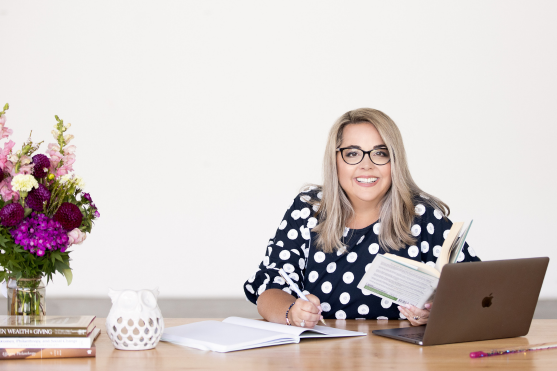‘Watch out – when women support a cause, they become activists’

Philanthropic strategist Kimberly Downes is the author of one of the few pieces of research into how women give in Australia. Here, she shares a story and some of the key findings. Despite women finding it difficult to consider themselves philanthropists, she says, they instinctively look after those in the community and through philanthropy have the power to give hope.
Women are storytellers and love connecting with others through stories and shared experiences. But women can shy away from sharing their passions for fear it will be seen as bragging.
In a recent trip to the US, the country where most of the rest of the world looks to emulate its philanthropy model, I was talking with a good friend. She and I met more than 30 years ago when we both started working in the field of fundraising. She’s one of those friends with whom we can talk about everything and it’s safe. No judgment. We can share our worries and passions. Our shared passion is philanthropy.
She was telling me how she had landed her dream job and said, “I will now finally be able to do two things … set up a travel fund and become a philanthropist.” I stopped her there and said, “Sorry … back up a minute … what do you mean become a philanthropist? What do you think a philanthropist is?”
She then started quoting all the definitions of a philanthropist. I sat listening to her in astonishment. Here is a female who has worked in fundraising for more than 20 years, she’s been a volunteer and a donor, yet she doesn’t think she is a philanthropist. I was puzzled. I had the impression growing up in the US that everyone talked about their philanthropy and wore it like a badge of honour.
After she was done defining a philanthropist, I broke it down for her. “Let’s keep this simple,” I said … “a philanthropist is someone who gives of their time by volunteering, their talent by helping on committees or boards, and their treasure by donating. Can you say yes to all of those?” Of course she could. Being wealthy doesn’t necessarily make you generous.
Even after being in the field of fundraising and working with donors on a daily basis she felt she had to be giving away thousands to be considered a philanthropist. But in truth, if you are giving back to the community, a volunteer and/or donor … guess what? You are a philanthropist!
She thanked me and felt she had actually become something she wasn’t, but in reality, she already was a philanthropist. I didn’t do anything. But I was still confused as she lived in the US and weren’t they meant to know these things? Maybe more education needs to be done everywhere on philanthropy. More stories need to be shared from “ordinary people” and not just the uber wealthy.
Australian research found that women don’t relate to the word philanthropist and don’t talk to others about their community involvement and giving. They are quiet and humble in their giving but are keen to solve major issues in our community. They want the stories upfront and the facts and stats later on. They will ask a lot of questions and want to meet those who they will be helping. Women want to feel a part of an organisation’s family. When a woman donates to your organisation, it means she trusts you and believes in how you are trying to solve the problem.
Be careful, when women support a cause, they become activists. Women instinctively look after those in the community and through philanthropy we have the power to give hope.
Kimberly Downes, CFRE, CAP, MFIA, authored the report The Role and Influence of Women in Australian Philanthropy.